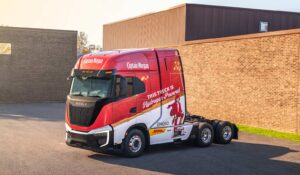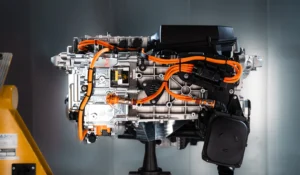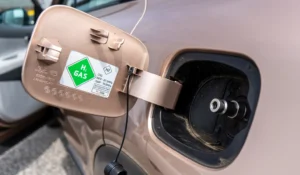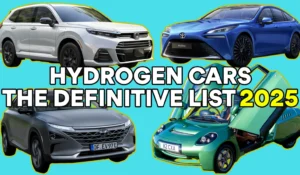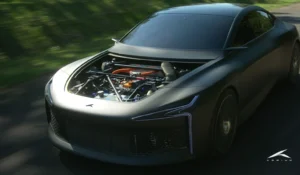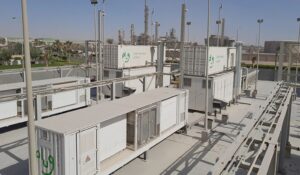Hydrogen trucks: €226 million funding for 100 liquid-hydrogen Mercedes trucks
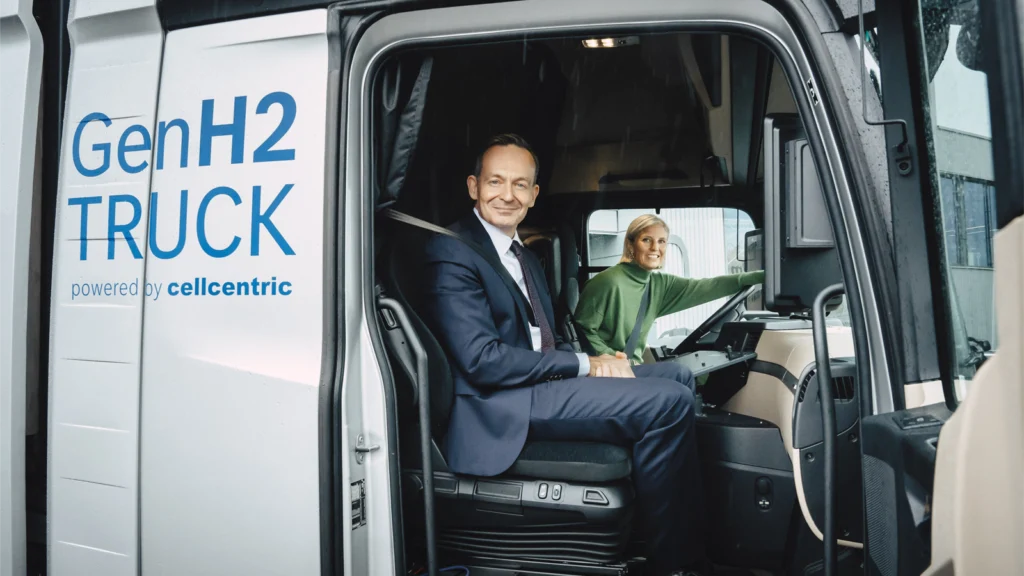
Daimler Truck has landed €226 million in funding for the development, small-series production and customer deployment of 100 hydrogen fuel cell trucks.
Jointly funded by Germany’s Federal Ministry for Digital and Transport, along with the states of Baden-Württemberg and Rhineland-Palatinate, the investment is part of the EU’s “Important Project of Common European Interest” (IPCEI) Hydrogen program.
The hydrogen-powered trucks will be produced at Daimler’s Wörth plant, with customer trials kicking off in late 2026.
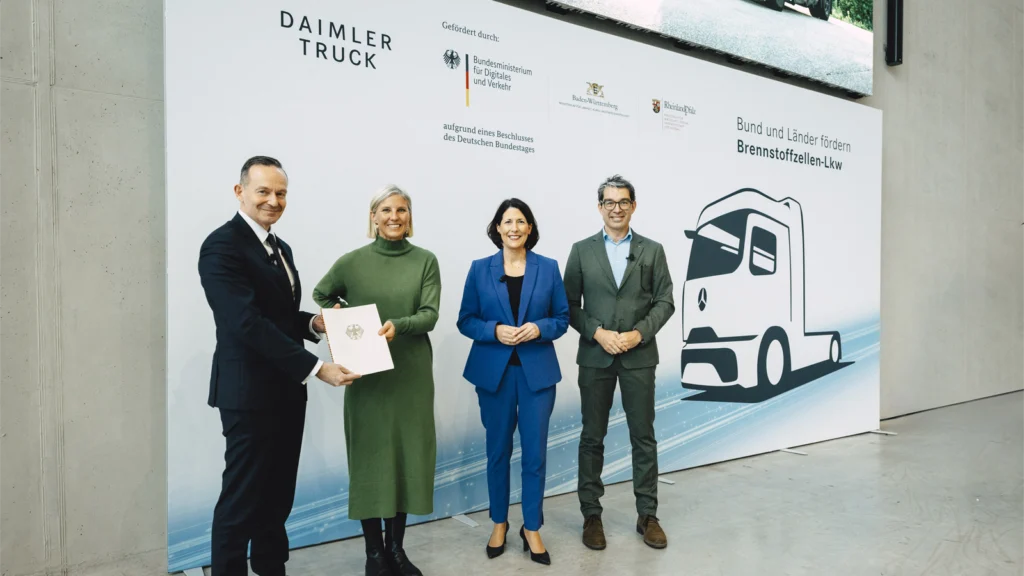
Interestingly, these trucks will run on liquid hydrogen – not gaseous form – where liquid H2 offers significantly higher energy density.
This means the trucks can carry more fuel and travel over 1,000 kilometers on a single tank, matching the range of diesel trucks. It also saves weight and space, giving operators greater payload capacity – a critical factor in freight transport.
Daimler have proved liquid H2’s potential with the Mercedes-Benz GenH2 truck during the #HydrogenRecordRun, where it completed 1,047 kilometers on one tank.
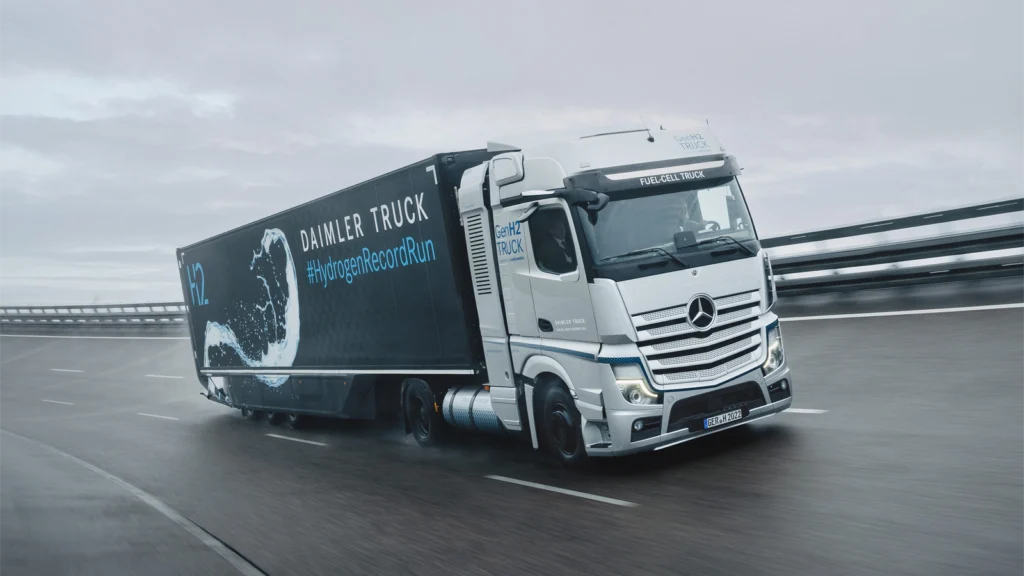
Now, this funding allows Daimler to move from prototypes, to small-scale production and real-world deployment.
Karin Rådström, CEO of Daimler Truck, highlighted the broader significance, saying:
“This funding is a strong signal not only for Daimler Truck but for the entire commercial vehicle industry.”
The trucks will be assembled at the firm’s Wörth plant, but the project involves multiple Daimler facilities across Germany:
- Kassel will produce electric drive axles.
- Mannheim is handling fuel cell research in its “Tech Tower.”
- Esslingen is piloting production of the fuel cells through Daimler’s joint venture, Cellcentric.
- Gaggenau will assemble the twin-system fuel cells.
This approach ensures expertise from across Daimler’s network, keeping Germany at the forefront of hydrogen innovation, and retains the quarter billion in public coffers at home.
Early trials already underway
Five prototypes are already on the road in Germany, running specific long-haul routes and refueling at two liquid hydrogen stations in Wörth am Rhein and Duisburg. These trials are continuing to provide valuable insights into how the trucks perform in real-world conditions.
The next step is scaling up production and deployment. The funding allows Daimler to move beyond prototypes, rolling out 100 small-series trucks for customer use.
Hydrogen infrastructure is the bottleneck
Daimler is clear: the trucks are ready, but the ecosystem isn’t yet. Liquid hydrogen filling stations remain scarce, and the hydrogen supply chain still needs to grow to meet demand. Affordable green hydrogen is critical for making these trucks a viable alternative to diesel.
A dual strategy for zero-emission freight
The company is pursuing a dual-track strategy with both hydrogen and battery-electric vehicles (BEVs).
Battery-electric trucks like the Mercedes-Benz eActros 600 are solid for short, predictable routes where charging infrastructure is available.
Hydrogen trucks are much better suited for long-distance hauls and heavy-duty applications, where flexibility and range are essential.
This allows Daimler to cover all customer requirements in the push towards decarbonisation.
What to expect in 2026 and beyond
The first 100 small-series hydrogen trucks will roll out of the factory by the end of 2026. The trucks are designed to bridge the gap between prototypes and mass production, giving customers a chance to test them in real-world operations.
But the trucks themselves are only part of the equation. Building the necessary refuelling infrastructure and ensuring a steady supply of green hydrogen will be critical to making hydrogen freight scalable.

